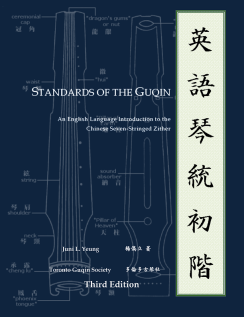This is the complete version of the Toronto Guqin Society’s submission to Hanfu Chunwan 2011, unedited. We wish everyone a happy, prosperous, and active New Year of Xinmou, the metal Rabbit!
4709 New Year’s TQS Greeting Video
08 Feb 2011 Leave a comment
in TorGuqin Notices Tags: Chinese New Year, Hanfu Happy Group, William Ho, Yanna Zhu
Rethinking the Hanfu Movement, Feb. ’11 (Causality and Diaspora)
07 Feb 2011 2 Comments
in Hanfu Tags: Chinese clothing, Chinese culture, counterculture, Cultural Revolution, Diaspora, Hanfu movement, Hong Kong, Malacca, Malaysia, Orientalism, Taiwan

Criticisms of the Heaven Sacrifice in early Feb 2011 in Beijing for resurrecting memories of Manchu tyranny, and relagating them to the epic-scale natural disasters in China, as they both started in 2008.
In response to a comment posted in an earlier “Rethinking the Hanfu Movement” series article, a question raised was, “If the Republic of China (in Taiwan), Hong Kong, Macau, and overseas Chinese are largely unaffected by the destruction of the Cultural Revolution and have maintained the authenticity of Chinese culture, why didn’t the Hanfu Movement start there, but rather the mainland instead?”
A simple online search for this question first leads to a Baidu Zhidao Encyclopedia entry quoting summaries from the discussion in Baidu Hanfu Bar (which was reposted on Tianya):
[Quote] According to popular explanation, Chinese cultural traditions are mainly preserved in Taiwan, Hong kong and overseas Chinese communities, and the mainland is where the tradition is at the thinnest. This is to the degree where Singaporean academics suggested that china should “Import Chinese tradition from overseas”, and people like Du Weiming and others wanting to investigate “after the Cultural Revolution, is there any news of re-emerging traditional culture”.
Yet the most odd thing was, the first people to bring back out Hanfu originated from the mainland, and the most vocal and active Hanfu Movement also is a mainland movement – not one from the “better preserved” regions of Taiwan, Hong Kong, or overseas. Why is that?
As we all know, the Manchu Qing used violent acts to force the Han Chinese to adopt new dress, and its effects were not effectively cleansed during the Republican period. Today, in Hong Kong, Taiwan, and overseas, this set of things [ie. Manchu-style dress] have hijacked the position of “traditional costume”. Despite anyone having an interest towards traditional Chinese dress, all he/she can contact is Qipao, Magua, and of the sort (which should be called “counterfeit ethnic costume”).
It is different for the mainland, however, as this concept of Qipao/Magua representation of counterfeit ethnic dress was completely swept out by the “iron broom” of the various movements after the Liberation (especially during the “Destroy the Four Olds” of the Cultural Revolution). This has caused a short blank in the history of Han ethnic costume, to which its historical meaning and effects cannot be underestimated:
- Because the Han Chinese no longer have their traditional dress (to its truest meaning, since they lost even the “counterfeit” stuff like Qipao/Magua), its position in relation with its sibling ethnicities [TL: of the 56-ethnic Zhonghua Minzu] and their flamboyant and unique dress becomes an extremely embarassing one. This has in turn become the impetus for people to find their ethnic dress.
- Because the “counterfeit ethnic dress” forced by the Manchu Qing also disappeared, it has given us [ie. Hans] a unique opportunity to re-establish a code of ethnic dress. Although in its initial stages, the “counterfeit traditions” lingering in Hong Kong, Taiwan and overseas caused some interference (such as the so-called Tangzhuang as seen in APEC [of 2001]), but since we are no longer living in the Qing, once we have made clear the true forms of Han ethnic clothing, then those “Tangzhuang” and other “counterfeit traditions” will immediately lose their ground, and step back from the stage of history once and for all.
Originally intending to completely decimate traditional Chinese culture, the “anti-tradition” has destroyed instead the “counterfeit tradition” as rewritten by the Manchu Qing period. With the original purpose to destroy all traces of tradition, “Breaking the Four Olds” have become the prerequisite context for the renaissance of Hanfu. History at times is just simply this strange. [Translation Juni Yeung]
Being a summary of Internet discussions, there are naturally insufficienies and more questions to this explanation. In this article, I shall try to list out a few. If there are any further questions, please feel free to leave a comment in the end. More




Recent Comments